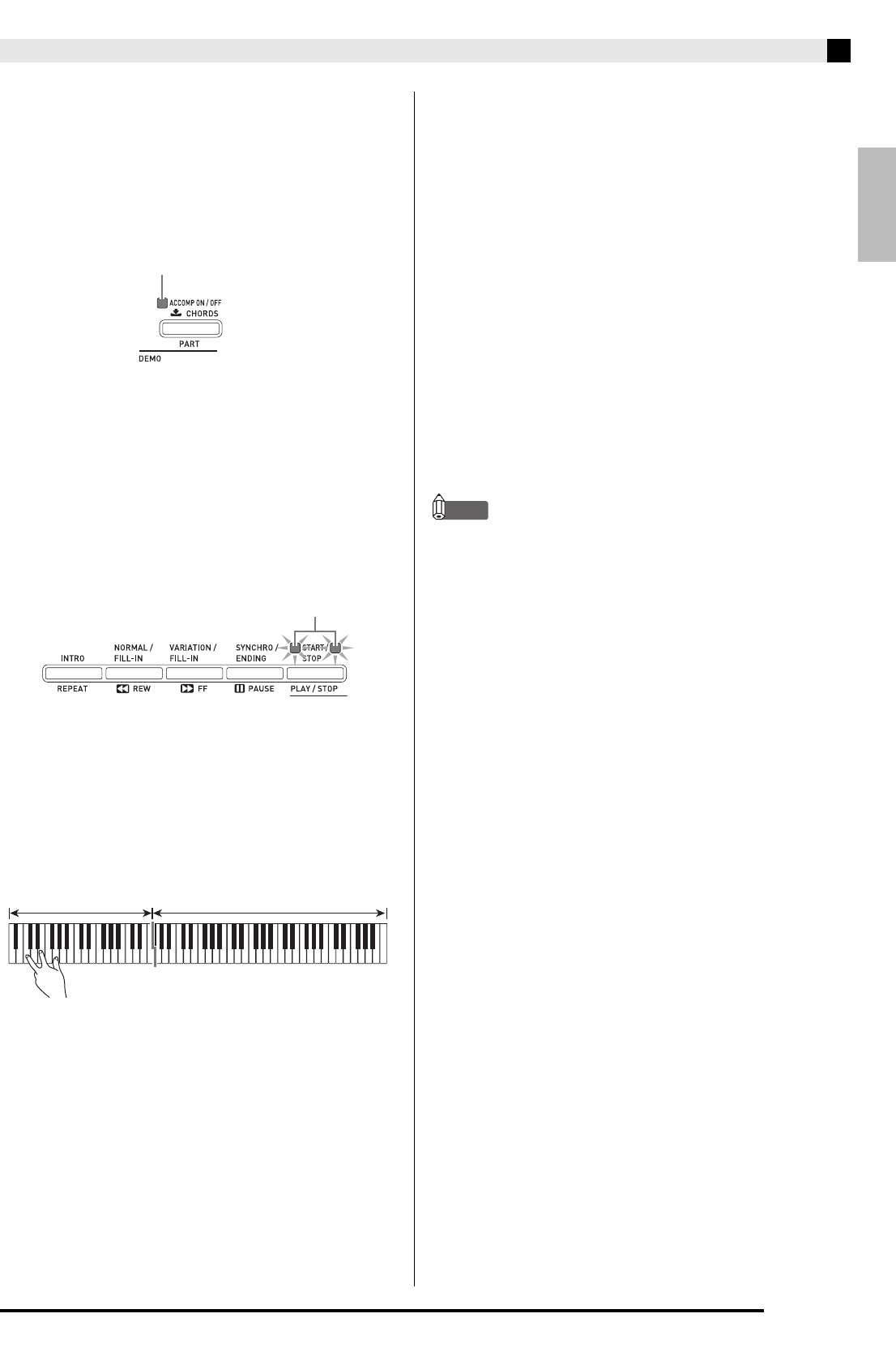
English
Using Auto Accompaniment
E-15
6.
Press the
bt
(ACCOMP ON/OFF) button so
its lamp is lit.
This turns ACCOMP on, so all accompaniment parts
sound.
• Turning ACCOMP off so the ACCOMP lamp is unlit
causes only the percussion instrument parts to sound.
• Each press of the
bt
(ACCOMP ON/OFF) button
toggles ACCOMP on and off.
7.
Press the
br
(SYNCHRO/ENDING) button.
This puts Auto Accompaniment into “synchro
standby”. Playing a chord during synchro standby will
cause Auto Accompaniment to start to play
automatically.
• Pressing the
bo
(INTRO) button while Auto
Accompaniment is in synchro standby will enter
intro standby. Pressing the
bq
(VARIATION) button
will enter variation standby. For details about intro
and variation patterns, see “Modifying Auto
Accompaniment Patterns” (page E-17).
8.
Play the chord you want on the chord
keyboard (left keyboard keys).
Auto Accompaniment will start playing when you play
the chord.
• To start percussion part play without playing a
chord, press the
bs
(START/STOP) button.
Example: To play a C chord
9.
Play other chords with left hand as you play
the melody with your right hand.
• You can use “CASIO Chord” or other simplified
chord fingering modes to play chords. For details, see
“Selecting a Chord Fingering Mode” in the following
section.
• You can use the
bp
(NORMAL) and
bq
(VARIATION) buttons to modify accompaniment
patterns. For details, see “Modifying Auto
Accompaniment Patterns” (page E-17).
10.
When you are finished, press the
bs
(START/
STOP) button again to stop Auto
Accompaniment.
• Pressing the
br
(SYNCHRO/ENDING) button
instead of the
bs
(START/STOP) button will play an
ending pattern before stopping Auto
Accompaniment play. For details about ending
patterns, see “Modifying Auto Accompaniment
Patterns” (page E-17).
NOTE
• You can use the following procedure to adjust the
volume level of the Auto Accompaniment, without
affecting the volume of Digital Piano output. For
details, see “Auto Accompaniment Volume” (page
E-42).
• You can change the size of the chord keyboard by
using the split feature to move the split point (page
E-8). The keyboard keys to the left of the split point
make up the chord keyboard.
Lit
Flashing
Chord keyboard Melody keyboard
